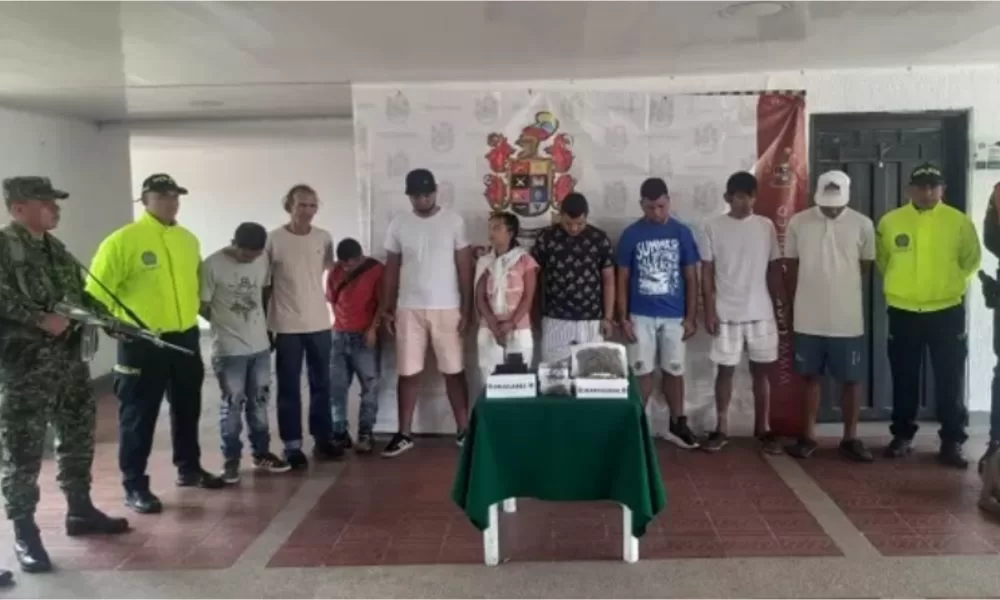GUATEMALA CITY — A Guatemalan court on Wednesday sentenced journalist José Rubén Zamora, nationally and internationally recognized for his investigations into corruption and a strong critic of the government of President Alejandro Giammattei, to six years in prison for money laundering.
The sentence came after several organizations denounced an escalation of authoritarianism in the country that includes the persecution of journalists and judicial officials and the exclusion of candidates who are not part of the traditional political forces.
“I am innocent of the crimes. I am still innocent and he is still a thief,” Zamora said at the end of the hearing in reference to President Giammattei.
The court also sentenced him to pay a fine of about $38,000 for affecting the national economy and the stability of the financial system.
The US-based Committee to Protect Journalists (CPJ) called Zamora’s sentence shameful. It is “clear testimony to the erosion of freedom of expression in the country and the desperate attempts by the government of President Alejandro Giammattei to criminalize journalism,” Carlos Martínez de la Serna, CPJ program director, said in a statement.
Meanwhile, the Miami-based Inter-American Press Association (SIP) said that a “witch hunt for journalists” is taking place in Guatemala.
In his last intervention before the sentence was known, Zamora reaffirmed that he was innocent and that his rights were violated, especially those of defense and due process, since he met his public defender lawyer minutes before the trial began.
After seven days of clashes between organized crime groups, some 1,500 military agents took control this Wednesday of the Mexican municipality of Frontera Comalapa, in the state of Chiapas, on the border with Guatemala, to try to calm its inhabitants.
The 66-year-old journalist was tried without the court allowing evidence to be presented in his favor. The prosecution had requested 20 years in prison, the highest penalty for the crime of money laundering, but the court concluded that no aggravating circumstances were accredited.
He had also accused him of extortion and influence peddling, crimes that according to the judges were not proven during the trial.
According to the prosecutor’s office, Zamora asked his friend Rónald García Navarijo -a former banker accused of corruption- to deposit more than $30,000 in cash in a bank.
Instead of doing so, he denounced Zamora. According to the journalist’s defense, the money was the product of a donation and Zamora did not deposit it in his own account to avoid knowing who the donor was due to government pressure on his outlet, El Periódico.
At the end of the hearing, visibly upset and raising his voice, prosecutor Rafael Curruchiche, head of the Special Prosecutor’s Office Against Impunity in Guatemala (FECI) that accused Zamora, said he will insist that he be sentenced to 40 years for all crimes. and anticipated that he will appeal the sentence.
“Now we would expect the US government to include him on the Engel list (which sanctions corrupt and undemocratic actors from Central American countries and in which Curruchiche was included) because it has already been proven that he is corrupt,” said the judicial official.
Curruchiche added that the sentence is compensation for all those people who “had their name and prestige destroyed” in the publications of Zamora and El Periódico. The outlet closed its doors on May 15, afflicted by political and financial pressures.
Along with Zamora, ex-prosecutor Samari Gómez was also tried, whom the prosecution had accused of colluding with Zamora for influence peddling. Gomez was cleared of the charges and immediately released.
Zamora’s family has said that what triggered his imprisonment was the publication of a case known as “The Russian plot” according to which President Giammattei would have received bribes from Russian businessmen in exchange for benefiting them with concessions for mega projects.
National and international organizations defending the press and human rights have pointed out that the case against Zamora is a criminalization of the journalistic practice in Guatemala and have requested his release.
Zamora has been awarded prizes such as the María Moors Cabot from Columbia University, the International Press Freedom Award and the World Press Freedom Hero Award from the International Press Institute.


